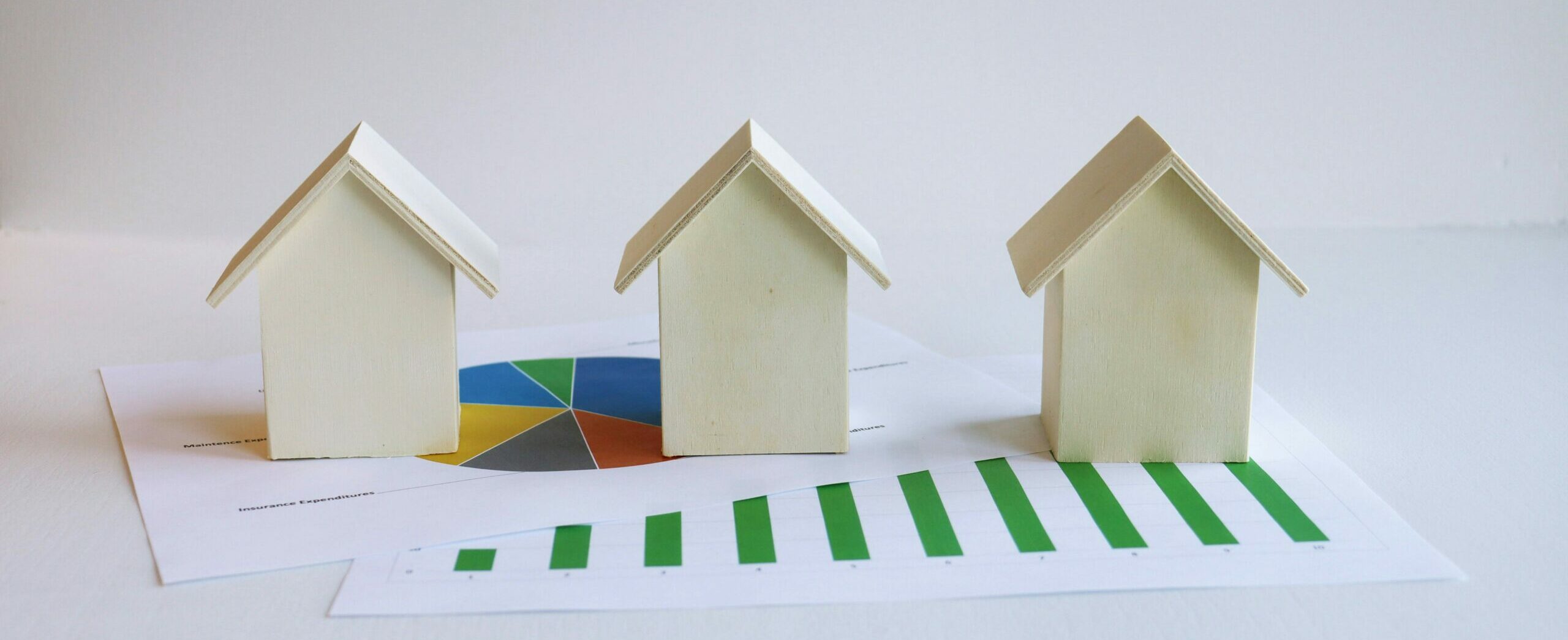To rent or to buy property in Dubai? That is the question you might possibly have in your mind. Over the past year, rents have jumped by 50% and property prices have increased by roughly 34%.
Dubai’s real estate market shows no signs of slowing down. It continues to attract expatriates, professionals, and investors from all parts of the globe. With the population set to cross the 7 million mark by 2040, demand for both rental and owned properties is skyrocketing.
The decision to rent or buy a property depends on a lot of factors, like your choice of lifestyle, the financial capabilities, and more.
In this comprehensive guide, you will see the factors that affect the real estate market in Dubai, the advantages of renting in Dubai, the advantages of buying a property in Dubai, and the considerations you need to keep in mind while deciding between buying and renting in Dubai.
Understanding the factors influencing Dubai real estate
Dubai’s real estate market is impacted by several factors:
Strategic geographical location
Dubai is situated at the crossroads of Asia, Europe, and Africa. As a result, the city has transformed into a global hub for trade, tourism, and business. This strategic location is an important factor in driving demand for both rental and self-owned properties.
Foreign investment magnet
Dubai’s pro-business policies, modern infrastructure, and tax benefits have attracted significant foreign investment. The surge in investments has fuelled the growth of Dubai’s real estate market.
Ever-growing expat community
Dubai’s reputation as an economic powerhouse has drawn expatriates seeking employment, stability, and a cosmopolitan lifestyle. The growing expat population has contributed significantly to the jump in rental prices. Many expats that have enough savings would often opt to buy a property, contributing to the increase in property prices.
Legal factors
The real estate market in Dubai is heavily regulated to protect all stakeholders. Dubai’s introduction of freehold areas, where non-UAE nationals can own property, has opened up avenues for property ownership by foreigners. This policy has expanded the real estate market and led to significant increase in demand.
Financial accessibility
To boost the real estate market in Dubai, several financial institutions provide mortgage solutions to residents and non-residents. PRYPCO has tied up with 17+ leading banks to provide you with the best mortgage deals and pre-approval within 48 hours.
What are the advantages of renting a property in Dubai?
If you do decide to rent a property in Dubai, here are some of the benefits you can expect.
Short-term commitments
Whether in Dubai or elsewhere, renting offers flexibility to adapt to changing circumstances without long-term commitments.
In Dubai, the rental contracts are for 1 year. If you wish to leave the property, you simply need to provide a 3-month notice to your landlord.
Rentals are popular among many expatriates who are here for a short-term or just want to spend a few years in Dubai.
Easier to relocate
When you change jobs, it may happen that your new workplace is far from where you currently reside. If you rent a property, you can easily shift to a place close to where you work. If you have children, it’s also easier for you to move closer to the schools.
Minimal maintenance and repair responsibilities
Property maintenance and repairs beyond a certain value (mentioned in the contract) are typically the landlord’s responsibility. This helps ease the financial as well as logistical burden involved in maintaining and repairing a property.
Diverse location choices
Rental properties are available throughout Dubai, allowing you to select a neighbourhood that aligns with your lifestyle and preferences. Many expats often prefer renting in Dubai to stay in areas like Bur Dubai, Deira, Qusais, etc., where freehold properties are rare.
If you wish to buy a property in Dubai, it is important to note that you can only do so in the areas designated as freehold by the government.
What are the advantages of buying a property in Dubai?
While renting a property has its advantages, buying a property in Dubai is also beneficial. Let us look at some of the advantages of buying a property in Dubai.
Place to call home
Owning a property in Dubai provides stability and a sense of belonging to the city. It also provides you with a motivation to stay in Dubai for the long-haul.
While renting a property, the landlord may ask you to evict your apartment, which can bring up challenges like finding a suitable property, relocating, logistical challenges, and much more.
Visa benefits
If you own a property in Dubai, you can get yourself a 10-year UAE Golden Visa or a 2-year Investor Visa, helping you secure your residency in the UAE.
If you have AED 1,000,000 or more paid up against your property in the UAE (with or without a mortgage), then you can qualify for a 10-year UAE Golden Visa.
If you have AED 750,000 or more paid up against your property in the UAE, then you can qualify for the 2-year Investor Visa.
Investment potential
The average rental price increased by around 50% between 2022 and 2023, with property values rising by about 34% during the same period.
As mentioned above, the real estate market in Dubai is booming and shows no signs of slowing down. Thus, property ownership in Dubai can serve as a potential investment, offering the possibility of capital appreciation and passive income in the form of rental.
Personalisation and customisation
Owning a property gives you the freedom to customise and modify your living space according to your preferences and needs.
In Dubai, you would have to get permission from your landlord to make changes in case of rentals. Most landlords are hesitant to grant these permissions, as it may lead to additional costs on their end or create a hindrance in renting the property to someone else in the future.
Financial considerations for renting vs. buying in Dubai
Before you decide to rent or buy in Dubai, here are some financial considerations you should take into account:
Upfront costs
Renting typically involves lower upfront costs compared to buying, which can require significant initial expenses.
In renting, the initial costs that are incurred in Dubai generally include Ejari costs, a refundable deposit for your apartment, and broker fees.
When it comes to buying a property, you would have to make a down payment if you opted for a mortgage. You would also have to pay fees for transferring the unit to your name, legal fees, administrative costs, and many more. However, at the end of the day, it will be a property that you own and can resell in the future at higher rates.
Monthly payments
If you opt for a mortgage to buy a property in Dubai, you should compare your monthly mortgage payments with your rent.
If the payments are more than you rent, and it may put your finances at risk, then you should reconsider your decision to buy a property.
However, it may also happen that your mortgage payments will be closer or lesser than your rentals. In such cases, it is better to own your home.
Other considerations for renting vs. buying in Dubai
There are some non-financial considerations you should also take into account in your decision-making.
Location factors
Foreign nationals can buy property in areas and buildings designated as freehold. Some of the top freehold areas are Downtown Dubai, Business Bay, Palm Jumeirah, and more. An increasing number of areas and buildings are now offering freehold properties.
On the other hand, there is generally no restriction on where you can rent a property in Dubai.
Personal goals and future plans
Are you looking to stay long-term in the UAE? If yes, then it makes sense to buy a property in Dubai.
You should also consider your future family plans. Families generally prefer to have a permanent home, as rentals can often come with the headache of shifting regularly. It is important that you also talk to your family, before making a decision.
Market trends and economic conditions
Currently, the real estate market in Dubai is on the uptrend. Investing in a property now may fetch you high rental income and decent capital appreciation.
If you are looking to buy a property for self use, you may want to consider the interest rates for mortgages, economic growth, and stability of employment.
Rental prices vary significantly based on the economic conditions. The stable economy of Dubai continues to attract an influx of migrants leading to skyrocketing rental prices. In many cases, it can be cheaper for you to own a home rather than rent one.
How can PRYPCO help with buying or renting in Dubai?
PRYPCO simplifies your real estate journey by helping you own the property, the process, and all things in between.
We provide mortgage and visa processing services. Our tie-ups with 12 leading banks in the UAE ensure our clients get the best mortgage solutions and pre-approvals in 48 hours. You can also calculate your mortgage payments using our free and fast calculator.
Once you have bought your property, we can help you secure your residency in the UAE with our Golden and Investor Visa processing services. Click here to apply NOW!
Buying vs. renting a property in Dubai can be a difficult decision that spans beyond a physical space. Weigh the benefits of each and take financial and other considerations into account before you make the crucial decision to buy or to rent, in Dubai.




